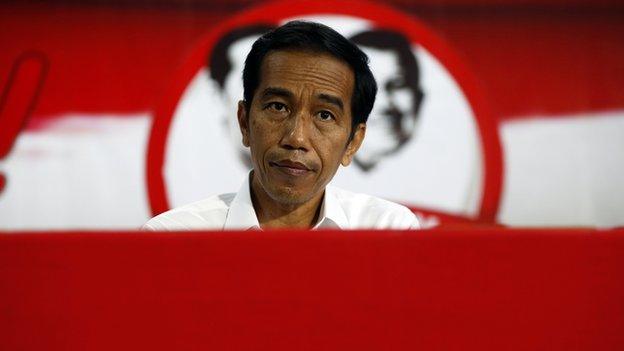Ex-Australian PMs make appeal over Bali Nine drug pair
- Published
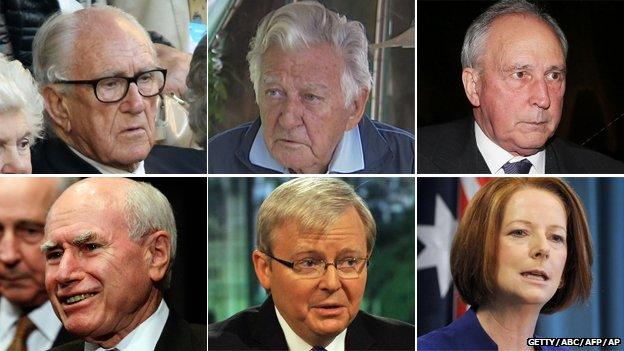
Malcolm Fraser, Bob Hawke, Paul Keating, John Howard, Kevin Rudd and Julia Gillard appealed for the convicts
All of Australia's living former prime ministers have made a united plea for Indonesia to spare the lives of two Australian men on death row.
Andrew Chan and Myuran Sukumaran were given the death sentence in 2006 for leading a drug trafficking group known as the Bali Nine.
The former prime ministers said they deserved clemency.
An Indonesian official has told the BBC that the executions are unlikely to go ahead this month.
Tony Spontana, spokesman for Indonesia's attorney general's office, said preparations at the high-security Nusa Kambangan prison, where the executions will be carried out, had taken longer than expected.
Earlier, Attorney General H M Prasetyo said their move there was being delayed so that Chan and Sukumaran could spend more time with their families.
Indonesia has some of the toughest drug laws in the world and ended a four-year moratorium on executions in 2013. It has insisted the executions will go ahead.
'Human understanding'
Malcolm Fraser - who was prime minister from 1975 to 1983 - and all his successors gave their support to Australia's continuing protest against the executions.
John Howard said the pair had "demonstrated genuine rehabilitation", while Bob Hawke told The Australian newspaper , externalthat justice should be based on human understanding.
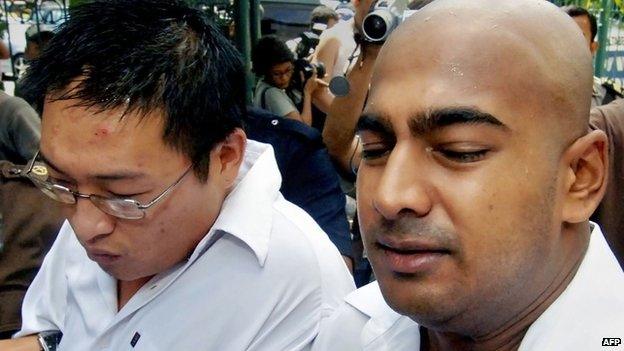
Andrew Chan and Myuran Sukumaran were arrested in 2005
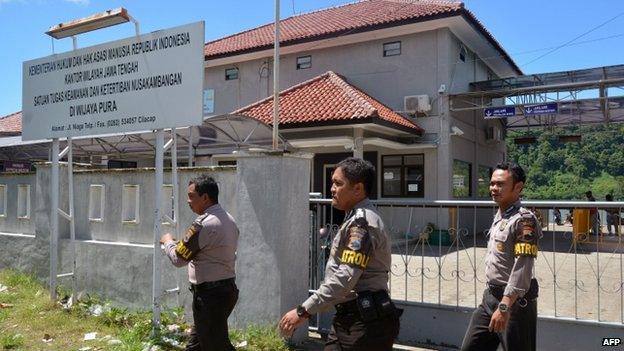
Indonesia's Nusa Kambangan prison, where the executions are due to take place
"These two men made a mistake when they were young and foolish," he said. "They have served their incarceration with model behaviour, and I therefore urge and plead that the government reconsider its decision to now take their lives."
Julia Gillard said: "I personally would find it heartbreaking if such extraordinary efforts to become of good character were not met with an act of mercy, of recognition of change."
Paul Keating and Kevin Rudd also added their voices to the plea.
Australia opposes the death penalty.
Six other individuals - from Brazil, France, Ghana, Nigeria, Indonesia and the Philippines - are also being moved to the high-security prison.

Who are the Bali Nine?
The eight men and one woman were arrested in April 2005 at an airport and hotel in Bali, Indonesia after a tip-off from Australian police. They were trying to carry 8.3kg (18lb) of heroin back to Australia.
In 2006 a court ruled that Andrew Chan and Myuran Sukumaran had recruited the others and paid their costs. They were sentenced to death.
The other seven are serving sentences of between 20 years and life, after some had death sentences revoked on appeal.
Chan and Sukumaran have repeatedly appealed against their sentences and say they are reformed characters - Chan teaches Bible and cookery classes in prison while Sukumaran is an artist.

'False hope'
The current Australian Prime Minister Tony Abbott said on Monday he believed there were still legal options open in the case.
Lawyers for Chan and Sukumaran have filed a complaint in the administrative court challenging the decision to reject their clemency appeals.
"We have been summoned by the administrative court to appear on 24 February," lawyer Todung Mulya Lubis told a press conference. "This is an evidence that legal process is still ongoing."
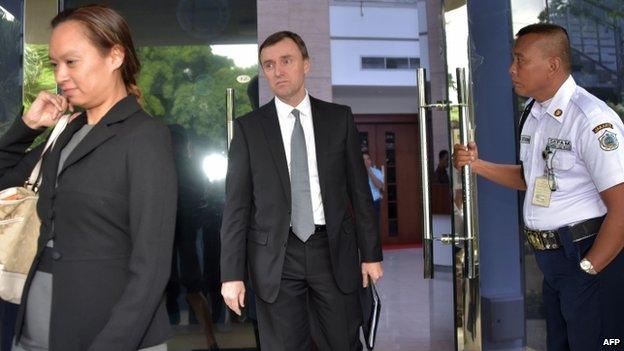
Australian embassy officials discussed the planned executions with the Indonesian authorities on Monday
But Mr Spontana told the BBC earlier that the court filing did not affect preparations for the executions.
"I can't tell you what will happen if the administrative court says the clemency rejection was flawed. For now as far as we know we have gone through all the legal process to carry out an execution."
Australian media on Monday reported that the men's lawyers had written to the Indonesian judiciary alleging judges had asked for bribes for lighter sentences.
- Published29 April 2015
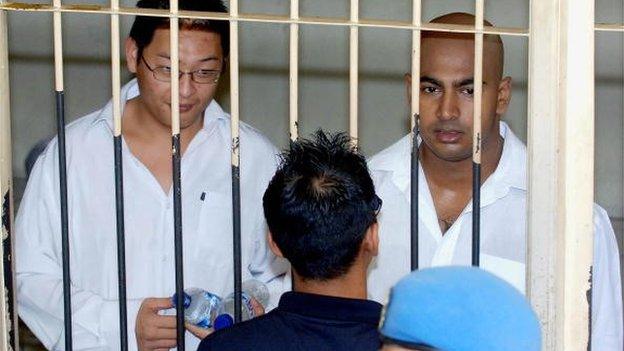
- Published8 February 2015
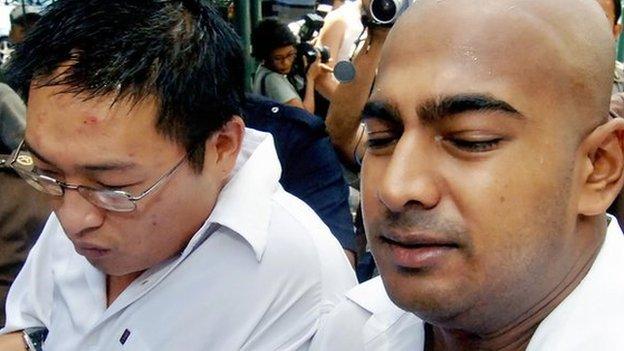
- Published16 February 2015
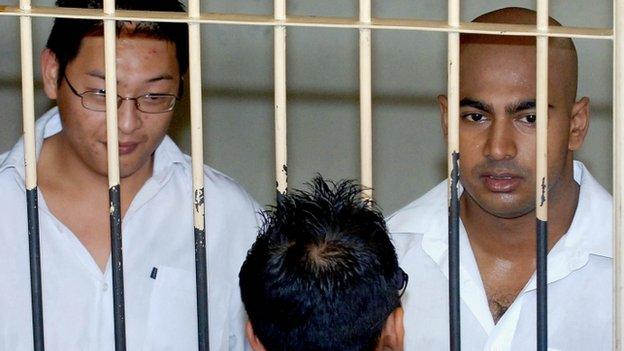
- Published22 July 2014
